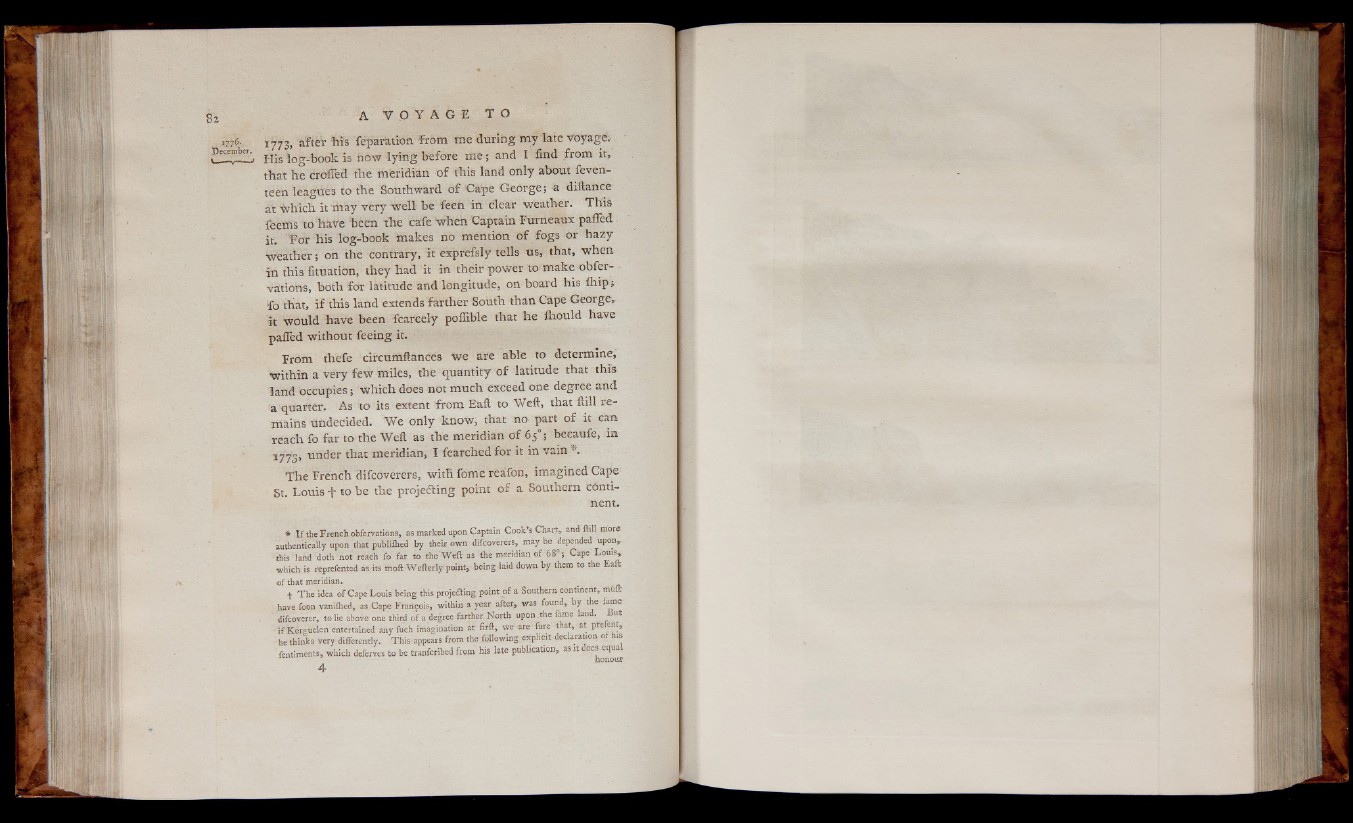
1776. I *773i after his feparation from me during my late voyage.
December.^ ^ js now lying before me ; and I find from it,
that he eroded the meridian of this land only about feven-
teen leagues to the Southward of Cape George ; à diftance
at Which it may very well be feen in clear weather. This
feèUis to have been the cafe when Captain Turneaux palled .
it. Ear his log-book makes no mention of fogs or hazy
weather ; on the contrary, it exprefsly tells us, that, when
in this fituation, they had it in their power to make obfer-
vations, both for latitude and longitude, on board his Ihip;
fo that, if this land extends farther South than Cape George,
it would have been fcarcely poffible that he ihould have
palled without feeing it.
From thefe circumftances we are able to determine,
within a very few miles, the quantity of latitude that this
land occupies ; which does not much exceed one degree and
a quarter. As to its extent from Eaft to Weft, that ftill remains
undecided. We only know, that no part of it can
reach fo far to the Weft as the meridian of 65°,; becaufe, in
1773> tinder that meridian, I fearchedfor it in vain *.
The French difcoverers, with fome reàfon, imagined Cape
St. Louis -f* to be the projecting point of a Southern continent,
* I f the French obfervations, as marked upon Captain Cook’s Chart, and ftill more
authentically upon that publi'ihed by their own difcoverers, may be depended upon,
this‘ la n d doth not reach fo far to the Weft as the meridian of 68° j. Cape L o t is ,
•which is represented as its moft Wefterly point,- being laid down by them to the Eaft
©f that meridian.
+ The idea of Cape Louis being this proje&kg point of a Southern continent,, mult
have foon vaniihed, as Cape François, within a year after,, was found, by the fame
difcoverer, to lie above one third of a degree farther, North upon .the fame lan . ut
if Kerguelen entertained any fuch imagination at firft, we are1 lure t at, at pre ent,
he thinks very differently. This appears from the following explicit declaration of his
fentiments, which deferves to be tranfcribed from his late publication, as it oes equ
honour